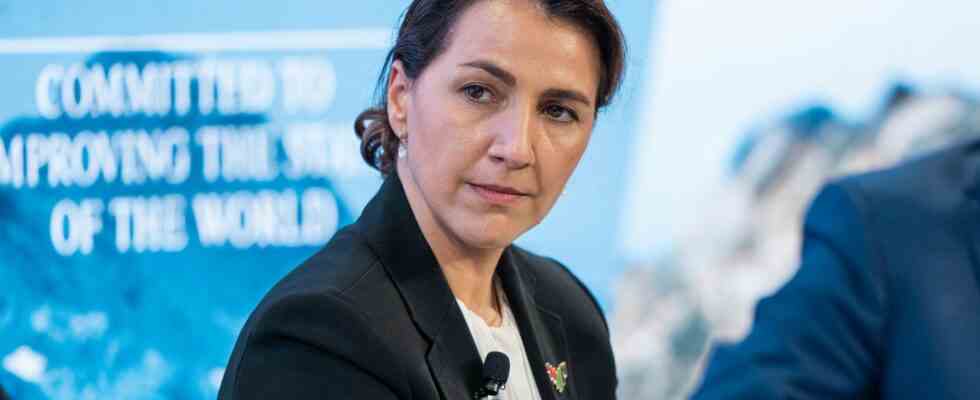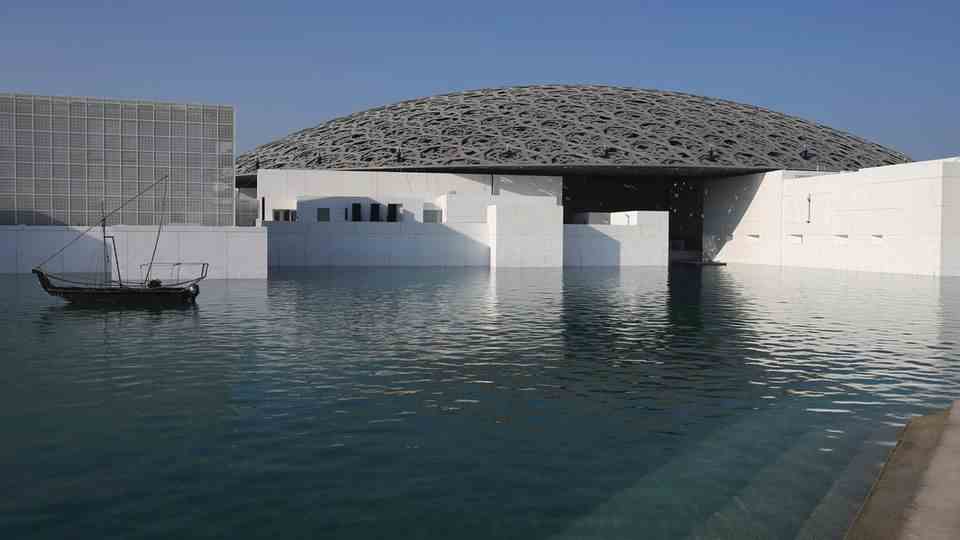Meeting with Olaf Scholz
Mariam al-Mheiri: Trained in Aachen, Minister in Abu Dhabi
Chancellor Olaf Scholz met Mariam al-Mheiri, among others.
© Picture Alliance
In the heat of a mangrove forest, Chancellor Olaf Scholz meets an interesting woman: Mariam al-Mheiri is the combination of Robert Habeck and Steffi Lemke in the United Arab Emirates.
It’s muggy and hot in Abu Dhabi, the Chancellor’s path leads through swampy areas and the sun shines unhindered on Olaf Scholz’s hairless skull. The Minister for the Environment and Climate Protection of the United Arab Emirates (UAE) leads the guest from Berlin through a mangrove forest on a boardwalk. Mariam al-Mheiri tells Scholz about the ecological advantages of the trees and explains to the former mayor the importance of the tidal range for the mangroves to thrive. The heat is gradually painting its damp landscapes on the Chancellor’s white shirt.
Olaf Scholz meets Mariam al-Mheiri, Arab environment minister with a German background
Scholz and al-Mheiri speak English to each other, which is surprising because the minister is fluent in German. Her mother came to Dubai from Germany in 1978 and married an Emirati. Their daughter Mariam went to her mother’s country after school, was the first woman from the Emirates to study at the RWTH Aachen and graduated in mechanical engineering. “I’m a graduate engineer,” she says and laughs.
Al-Mheiri initially stayed in Germany and worked in a company that designed ball bearings for racing cars. But word of her qualifications quickly got around in the community of well-educated Emiratis, and her father’s connections did the rest: al-Mheri entered the civil service, where she rose to become a minister within a few years. As a part-time job, she is the representative for relations with the Federal Republic of Germany and is apparently a valued discussion partner in the Berlin ministries of Roibert Habeck and Steffi Lemke.
As far as the role of women is concerned, the Emirates stand out clearly from most of the neighboring countries in the Gulf region. Even the founder of the state, Sheikh Zayed, attached importance to girls being allowed to go to school, says al-Mheiri. The proportion of women in government is 30 percent, and in the Emirates parliament, which is not very influential, it is even 50 percent. There are also many women in scientific professions, in 2021 the UAE trained the first female astronaut. State funding expressly provides for equal pay. “And what I earn as a woman belongs to me,” says al-Mheiri. “I don’t have to share that with anyone.”
Emirates will host the 28th World Climate Conference
However, this equality applies above all to Emirati women. The proportion of the population of Emiratis, however, is only around 10 percent. As in other Gulf States, many workers come from abroad, and around 200 nationalities live in the UAE. Above all, human rights organizations criticize the fact that foreign women are worse off in service jobs.
Mariam al-Mheiri’s tour of the Chancellor through the mangrove park on Jubail Island is over after a good 20 minutes. But we will continue to have dealings with this woman. Because in 2023 the Emirates will host the 28th World Climate Conference. Above all, Al-Mheiri wants to take stock there with a view to implementing the Paris climate goals, she says: “What is our vision? What have we achieved?”. Things are likely to get hot in every respect: at the conference because of global warming, outside because of the tropical humidity.



